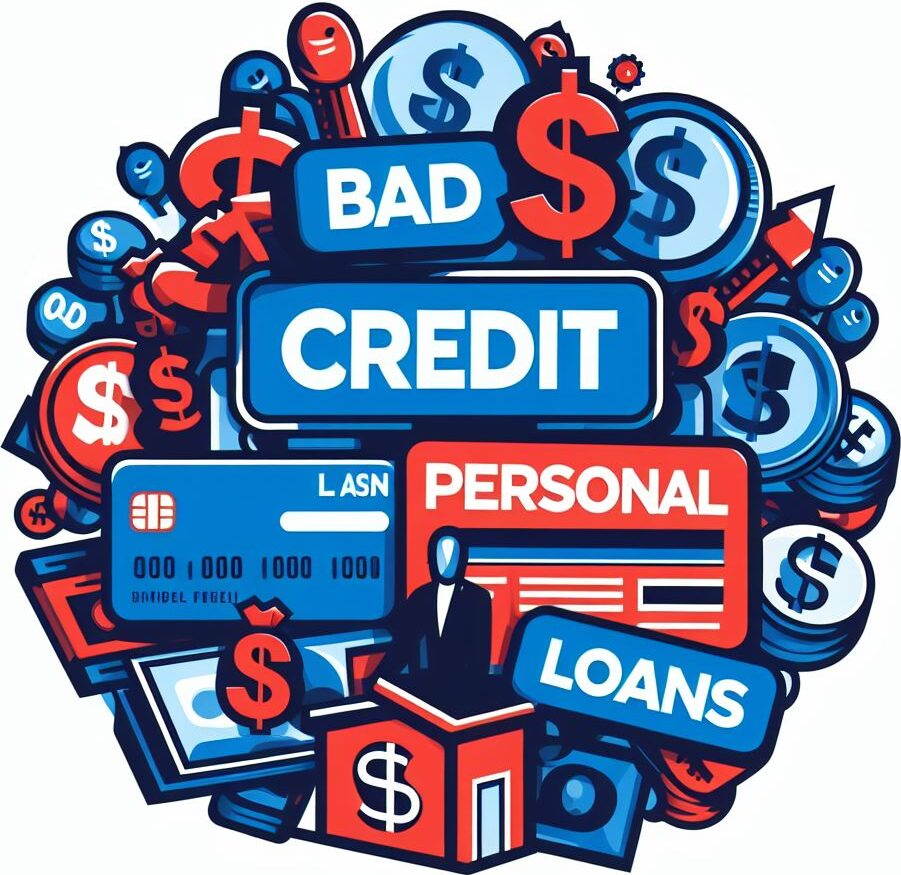Wondering why your credit score is so important? I’m going to unravel that mystery for you. A credit score is a snapshot of your creditworthiness. Think of it as a grade that lenders use to decide if they want to do business with you and on what terms. It rules over your financial fate when you’re looking to snag a loan, lease a car, or even get a smartphone plan. That’s right, this three-digit number could be the barrier between you and that dreamy home loan with a stellar interest rate.
This isn’t just about loans and credit cards, though. A solid credit score can also influence job prospects in fields that scrutinize your financial reliability. Insurance premiums, rental agreements, you name it; a good score can tip the scales in your favor. And let’s not forget stress reduction – knowing you’ve got a good credit score is like having an umbrella on a stormy day. It’s just smart to be prepared.

Now, there are a few big players when it comes to credit reports in the US: think TransUnion, Experian, and Equifax. These agencies keep tabs on your credit moves and distill your financial history into a score. FICO and VantageScore are the main scoring models they use, and while they keep their calculations close to the chest, we do know that they pay attention to your payment history, debts, length of credit history, and more.
If you’re eager to step up your credit game, keep reading. You’re going to find out about actionable strategies to elevate that score swiftly – from ironing out report wrinkles to steps for debt management, it’s coming up right after this.
Efficient Strategies for Improving Your Credit Score Swiftly
I’m going to kick off with something that might seem obvious, but you’d be surprised how many people skip it: scrutinize your credit report. Those reports can have mistakes, and those mistakes can ding your score. You’re entitled to a free credit report every 12 months from each of the three major credit bureaus, so take advantage of that. If you spot errors, dispute them immediately with the credit bureau.
Debt consolidation can be a game-changer for your credit score, and here’s how. By rolling multiple debts into one single loan, ideally with a lower interest rate, you’re simplifying your payments and could be paying less in interest. This isn’t just about easing your monthly budget; it’s also about showing potential lenders that you’re on top of your finances.
Don’t worry too much about missing a payment now and then, right? Wrong. Your payment history is a heavyweight when it comes to credit scores. Setting up payment reminders or automatic payments can help ensure you never miss a due date. Consistency is key, so make punctuality a priority.
Now, you can always adjust your approach down the rumbling road of credit improvement. But these initial steps are all about establishing reliability and accuracy – essential foundations of a healthy credit score. Keep them in mind as we move to the next pillar of credit score rebuilding: mastering your credit utilization.
The Role of Credit Utilization and How to Optimize It
I’m going to shed some light on credit utilization, a term you might have come across but might not fully grasp. It’s the second-bigest factor in your credit score calculation, right after payment history. Basically, credit utilization is just a fancy way of describing how much of your available credit you’re using at any given moment.
You’re going to find out about some savvy techniques to keep this ratio in check. Aim to maintain your credit utilization below 30%. That’s the sweet spot according to credit experts. For instance, if you have a credit card limit of $10,000, try not to carry a balance greater than $3,000.
Here’s what you can do: pay down your credit card balances. Sounds straightforward, right? But this isn’t just about one big payment; it’s also about consistent, smaller payments throughout the month. This strategy keeps your balances low relative to your limits.
Another smart move? Ask for an increase in your credit limits. If you’ve been a responsible cardholder, chances are, your credit card issuer might agree to bump up your limit. More available credit means a lower utilization ratio, providing you don’t increase your spending.
Now, you might think opening new credit accounts will help because it increases your total available credit. Well, it’s not that simple. This includes the risk of hard inquiries on your credit report, which can temporarily ding your credit score. Choose something that resonates with you and tread carefully.
Long-term Habits for Maintaining and Enhancing Credit Health
I’m going to wrap this up by focusing on the big picture – it’s not just about quick fixes, but also about setting yourself up for steady credit health over time. Credit scores are like a financial reputation, and they don’t become sterling overnight.
Diversifying your credit is a way to demonstrate to lenders that you can handle various types of credit responsibly. This could include a mix of credit cards, student loans, auto loans, and mortgages. Choose something that resonates with you and your financial situation, and incorporate it deliberately into your credit portfolio.
I’m here to tell you that while fast-acting solutions can give your score a nice boost, your long-term financial habits are the anchor. Paying bills consistently on time, keeping your credit utilization low, and making informed decisions about opening and closing accounts will lay a solid foundation.
In my opinion, one of the most potent tools at your disposal is regular credit monitoring. This proactive habit can alert you to potential fraud, identify areas for improvement, and keep you informed about the state of your credit health.
You can always adjust your approach down the road, but if you establish these resilient habits now, they will pay off significantly in the future. Your first attempt at improving your credit score doesn’t need to be your last; make it a part of an ongoing commitment to financial excellence and stability. Just don’t focus too much on perfection—progress is the true goal.

Hi Gary,
First of all, thank you for your service to our country!
In these times when our economy is struggling and so many people are having trouble paying their bills, your site is a valuable asset to those who need some help.
I have two businesses and both have been hit very hard by this Pandemic and now our economy and I am sure I am amongst many small businesses that are going through the same thing. I am OK so far but have your site to refer to is a great thing to have for so many that need your help.
Thank you,
Mike Powers
Cabin Living Today
Hi Mike,
Thank you so much for your kind words and support! I’m glad to hear that you find my site helpful, especially during these challenging times. It’s heartening to know that it can serve as a resource for small business owners like yourself who are navigating through these difficulties.
Your resilience and commitment to your businesses are truly inspiring. If there’s anything specific you need help with or any topics you’d like to see covered on the site, please don’t hesitate to reach out.
Thank you once again, and best of luck with Cabin Living Today and your other ventures!
Warm regards,
Gary
#SmallBusiness #PandemicResponse #EconomicSupport #Resilience #BusinessCommunity